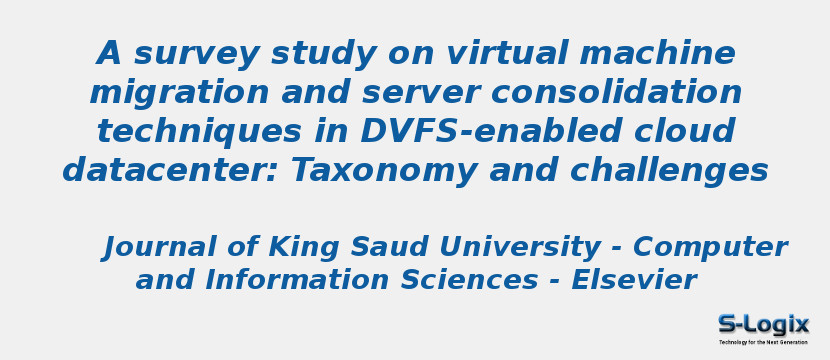Research Area: Cloud Computing
Cloud Computing is a promising paradigm in comparison with traditional information technology approaches, in which organizations and enterprises adopt elastic cloud services on a pay-per-use model in order to reduce costs. Virtualization is a technique pervasively applied in modern datacenters (DCs) to maximize resource utilization, reduce greenhouse gas emissions, and lower overall cost. Virtual machine (VM) migration is widely exploited within and across DCs to meet a variety of needs of the virtualized cloud environment. For instance, server consolidation needs VM migration for power management. Also, load balancing, fault tolerance, system maintenance, and minimizing the service-level agreement (SLA) violation rate require live VM migration. The VM migration process is very resource intensive and requires intelligent approaches to avoid saturating network bandwidth and to keep server downtime to a minimum. In addition, in Dynamic Voltage Frequency Scaling (DVFS) in cluster servers in intrinsically heterogeneous DCs the voltage-frequency is varied based on workload to reduce power consumption, which is a large part of the overall cost. Although miscellaneous cloud computing studies have been presented in the literature concerning economic, privacy, and security issues, etc., there is a clear lack of survey studies on VM migration, server consolidation, and DVFS techniques. To fill this gap, we present different schemes to classify commonalities and discrepancies between the perspectives of researchers, based on metrics derived from the literature. Finally, open issues, challenges, and future directions are discussed for improving existing schemes and approaches.
Keywords:
Author(s) Name: Mirsaeid Hosseini Shirvani,Amir Masoud Rahmani,Amir Sahafi
Journal name: Journal of King Saud University - Computer and Information Sciences
Conferrence name:
Publisher name: Elsevier
DOI: 10.1016/j.jksuci.2018.07.001
Volume Information: Volume 32, Issue 3, March 2020, Pages 267-286
